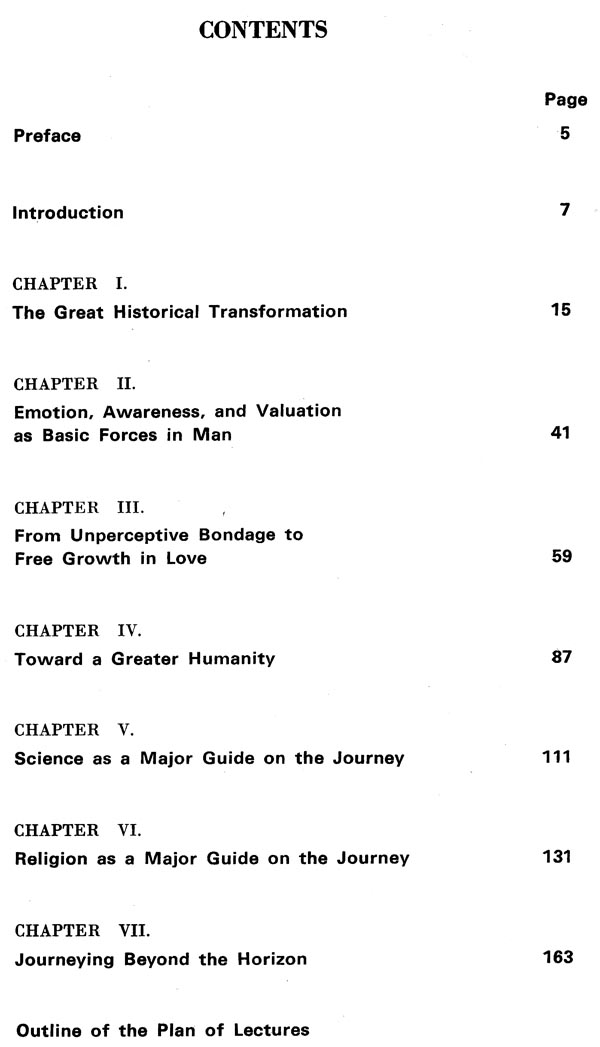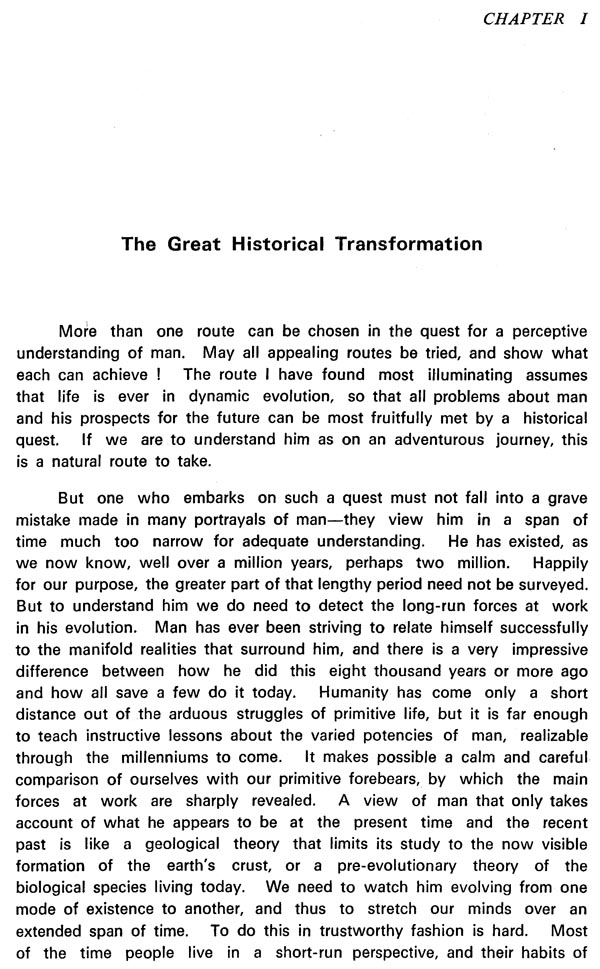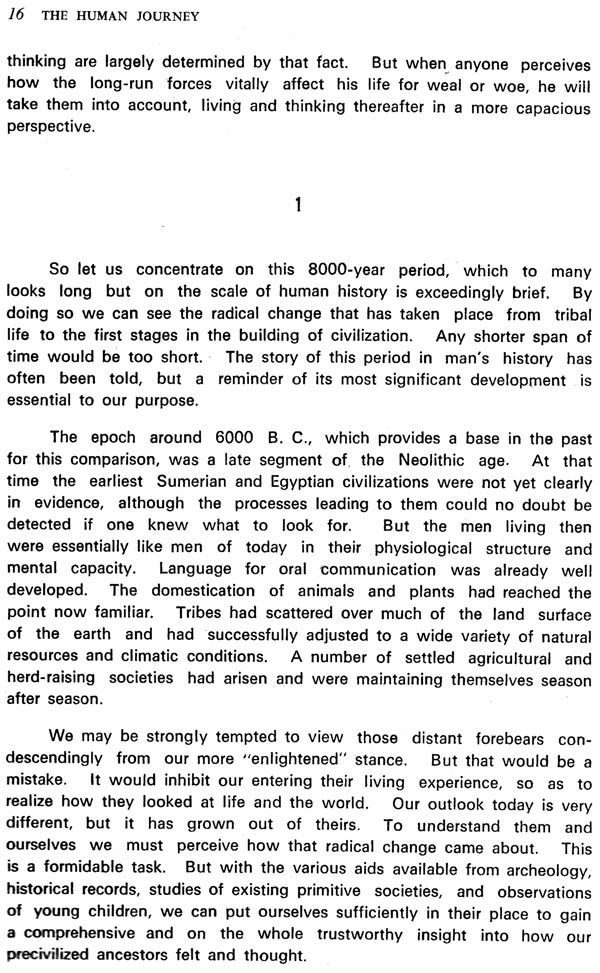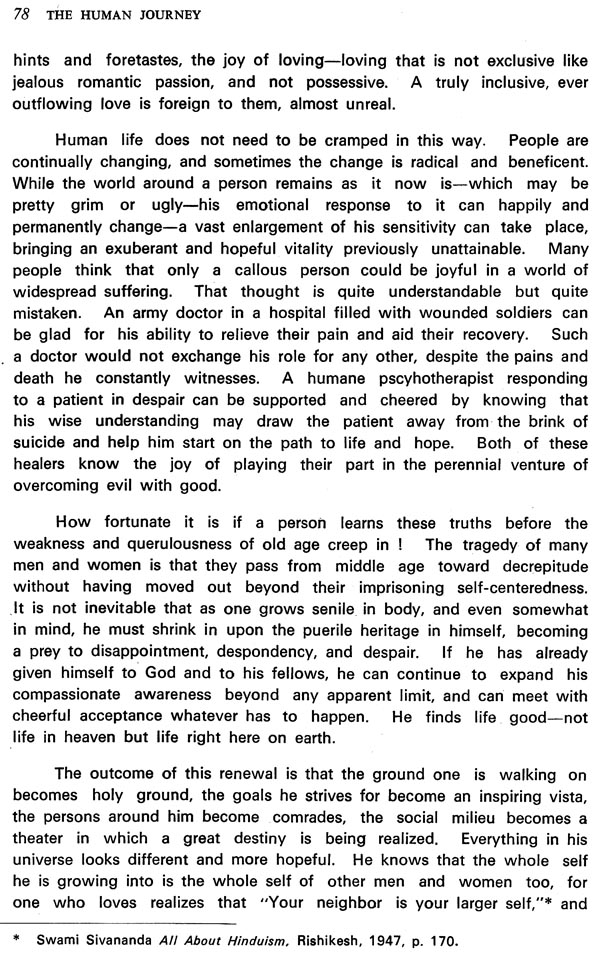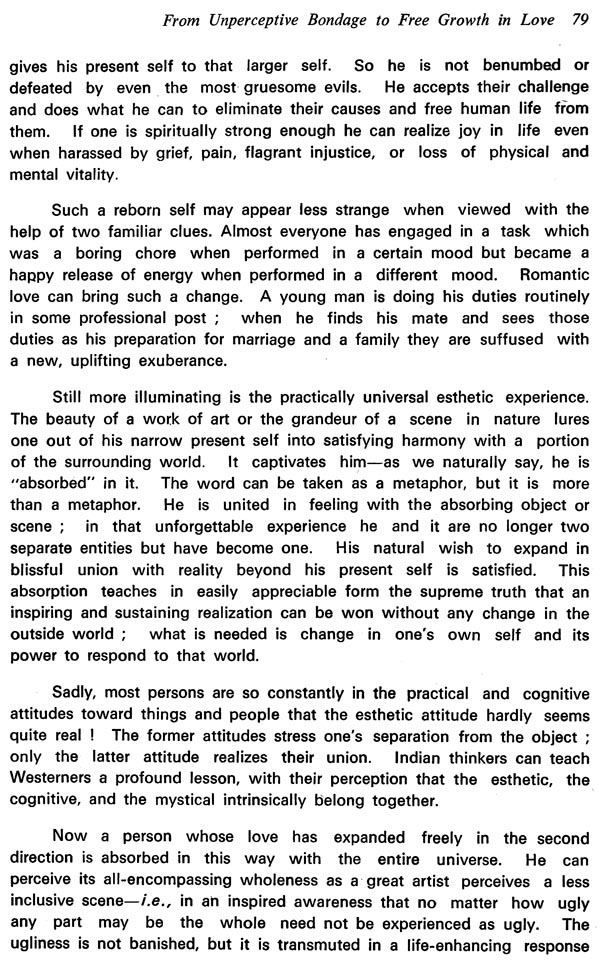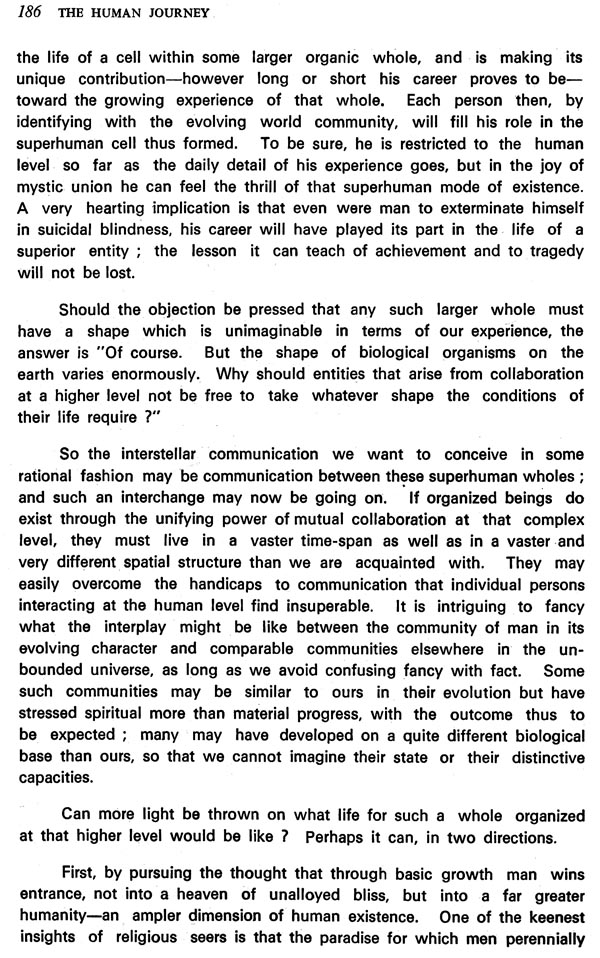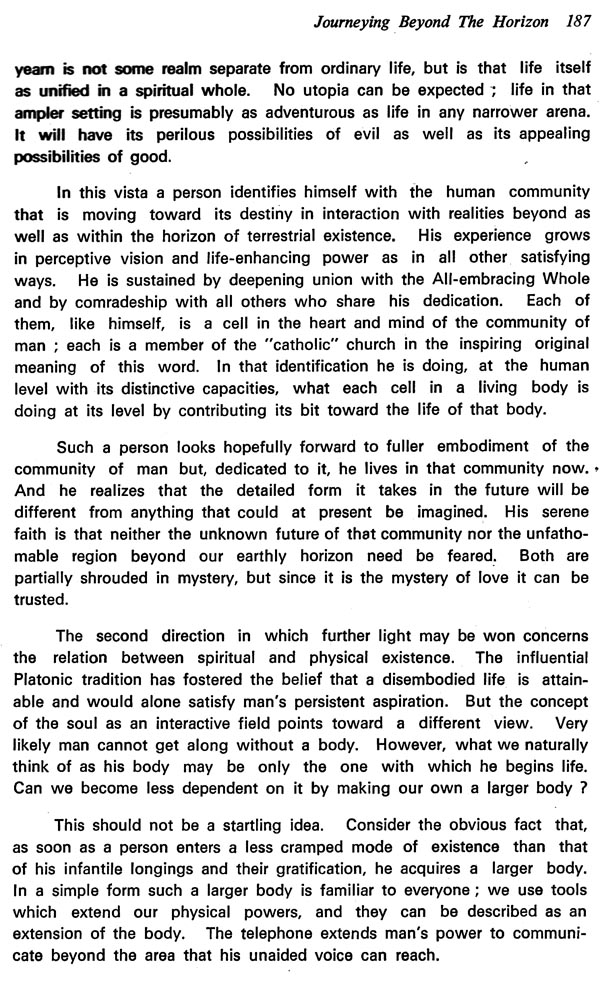
The Human Journey (An Old and Rare Book)
Book Specification
| Item Code: | NAZ211 |
| Author: | Edwin A. Burtt |
| Publisher: | University of Calcutta |
| Language: | English |
| Edition: | 1981 |
| Pages: | 188 |
| Cover: | PAPERBACK |
| Other Details | 9.50 X 7.00 inch |
| Weight | 370 gm |
Book Description
The terms of the Ghosh Lectureship were such that I felt it appropriate to present what was taking form in my mind as a set of Ghosh Lectures, which were given in January, 1968. In the present volume they have been revised and considerably expanded.
Due to unexpected circumstances, the lectures were delivered in the auditorium of the Ramakrishna Mission Institute of Culture instead of at the University. I am grateful for the hospitality Mrs. Burtt and I received both from the University and from the Institute.
May the Lectures now reach a wide and responsive audience.
Where is he now in his long journey through history? What important gains have been made? What obstructions impede his progress? Is he doomed to advance no farther than he already has-perhaps to backslide and even to destroy himself? What resources are aiding him? Is hope justified that despite blunders, frustrations, and relapses he will go forward?
These are big questions. No one knows what the perfect answer to them would be. But without a broad view of human life that points toward a sound answer people are bewildered, whereas with it they can in some measure understand the present confusing scene and gird them-selves to meet it. In such a view they can make sense out of their varied experiences and see how to think and act wisely.
Today is a very provocative time for seeking an inclusive view. People confront many perplexing and persistent quandaries that thus far have resisted any real solution. There are the menacing threats of nuclear war and unchecked ecological pollution. There are the harassing problems posed by rapidly expanding population, by swelling tension between the "have" and -have-not" classes or nations, by continued migration from rural areas to the sprawling cities in their dismal decay, by the progressive automation of productive activities, and by momentous biological or psychological transmutations such as earlier generations could not even imagine.
Why cannot these quandaries be readily solved? Extremely hard ones have been solved in the past.
Book's Contents and Sample Pages
